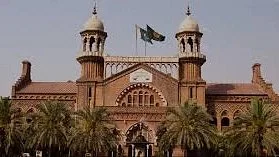Precedence, is that? Pakistani court strikes down sedition law supporting free speech

Mobilenews24x7 Bureau
Unbelievable it may sound but it has happened as reported in the international media that, a court in Pakistan’s eastern city of Lahore has struck down a colonial-era sedition law, calling it “inconsistent” with the constitution, in a verdict hailed by free speech advocates and journalists.
One does not know how the Lahore High court’s verdict would sustain the pressure of the Pakistani regime which upholds the supremacy of the military driven political structure there but for once it has sent a good signal.
A single-judge bench of the Lahore High Court on Thursday declared the sedition law unconstitutional. The court’s verdict will be applicable across the country unless the Supreme Court overturns the high court’s decision.
The ruling from Justice Shahid Karim came in response to several similar petitions filed against the law by citizens on the grounds that the government uses it against its political opponents.
Former Prime Minister Imran Khan, who has organised mass rallies to force the government to announce national elections, faces more than 100 cases, including the charge of sedition.
The government of Prime Minister Shehbaz Sharif has also tried to limit the powers of the Supreme Court, which has taken suo motu notice against executive decisions. A suo motu is when a court itself commences proceedings on a matter that it considers in the public interest.
The sedition law, which was enacted in 1860 during British colonial rule of the Indian subcontinent, states: “Whoever by words, either spoken or written, or by signs, or by visible representation, or otherwise, brings or attempts to bring into hatred or contempt, or excites or attempts to excite disaffection towards, the Federal or Provincial Government established by law shall be punished with imprisonment for life to which fine may be added, or with imprisonment which may extend to three years, to which fine may be added, or with fine.”
“You cannot have a law which does not allow dissent or free speech,” the Lahore-based lawyer said.
“This law was in patent violation of Article 19 of Pakistan’s Constitution, which protects free speech,” he said.
With inputs from AL Jazeera






